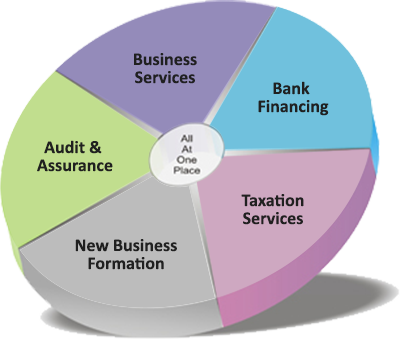Income Tax Assessment
Tax Assessment - Overview
Income Tax Assessment is the process by which the Income Tax Department evaluates the income declared by taxpayers, verifies the taxes paid, and ensures compliance with applicable laws. It involves examining the financial details provided by the taxpayer to determine the correctness of income disclosures and the validity of tax liabilities or refunds.
This process helps ensure transparency, fairness, and accountability in taxation while discouraging tax evasion and inaccuracies.

Types of Income Tax Assessment in India
Self-Assessment (Section 140A)
Performed by the taxpayer while filing their Income Tax Return (ITR).
Ensures that all taxes, including advance taxes and interest liabilities, are paid before submitting the return.
Scrutiny Assessment (Section 143(3))
A detailed examination of the taxpayer’s accounts and claims made in the ITR.
Conducted when the department suspects under-reporting of income or improper claims.
Taxpayer may be required to provide supporting documents.
Income Escaping Assessment (Section 147)
Initiated if the department believes income has been under-reported or not assessed.
Can be conducted within 4 years (or 10 years for substantial under-reporting) from the end of the relevant financial year.
Summary Assessment (Section 143(1))
An automated process where the Income Tax Department checks for mathematical errors, missing information, or inconsistencies in the filed ITR.
If discrepancies are found, intimation is sent to the taxpayer for rectification.
Best Judgement Assessment (Section 144)
Conducted when the taxpayer fails to file a return or cooperate during scrutiny.
The tax officer determines income based on available information or estimates.
Protective Assessment
Used in cases of uncertainty where tax liability could arise in multiple hands.
Ensures the department secures taxes until ownership or liability is resolved.

Assessment Process
Filing of Returns: Taxpayers submit their ITR with accurate financial details.
Processing: The department checks for errors, inconsistencies, and compliance.
Intimation or Notices: Taxpayers may receive notices for rectification, additional taxes, or scrutiny.
Verification: Taxpayers may be asked to provide documents like Form 16, bank statements, or invoices.
Resolution: Issues are resolved, and the tax liability is finalized or refunds are issued.

Benefits of Income Tax?
Ensures transparency in income declaration.
Helps taxpayers rectify errors or omissions.
Facilitates prompt issuance of refunds.
Reduces risks of penalties and interest for non-compliance.

Frequently Asked Questions
FAQs on Income Tax Assessment
Income tax assessment is the process by which the Income Tax Department evaluates the accuracy of income declared and taxes paid by a taxpayer. It involves verifying the filed returns and determining any additional tax liabilities or refunds.
Self-Assessment (u/s 140A): Calculated and paid by the taxpayer while filing the return.
Summary Assessment (u/s 143(1)): Automated assessment based on return details.
Scrutiny Assessment (u/s 143(3)): Detailed assessment to ensure all declared incomes are correct.
Best Judgment Assessment (u/s 144): Conducted when the taxpayer fails to file returns or provide information.
Income Escaping Assessment (u/s 147): Reassessment if income is found to be under-reported.
The department sends a notice via registered email or postal mail. Taxpayers can also view notices on the e-filing portal under the “Compliance” section.
Yes, if you disagree with the assessment order, you can file an appeal with the Commissioner of Income Tax (Appeals) or higher authorities like the Income Tax Appellate Tribunal (ITAT).
Yes, revised returns can be filed before the completion of the assessment process, provided the notice allows rectification.
Testimonials
What Our Clients Says



